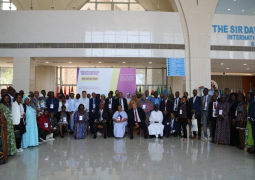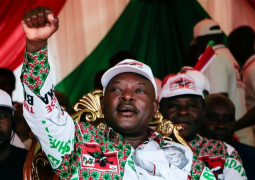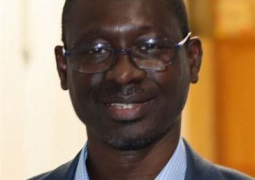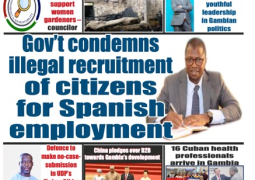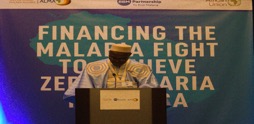
The objectives of the press conference was to achieve malaria elimination at the highest level on the political and development agenda with a call to action to fill both the short term and longer term resources gap to ensure that the fight against malaria is fully financed among others.
Speaking at the press conference, Vice President Jallow said The Gambia has made great strides in the fight against malaria. He said The Gambia has moved malaria from the most endemic febrile disease in the country to now at a pre-elimination stage.
“This is mainly because the prevention, diagnosis and management of malaria is integrated at the Primary Health Care level in our effort to provide Universal Health Coverage to all Gambians,” he told African leaders.
“We are happy to share information and good practices with ALMA members present here today. The Gambia’s prevalence of malaria has been less than one percent for over a decade.”
His Excellency Vice President Jallow said that The Gambia has cross border malaria activities with Senegal, but this could be extended to other ALMA members such as Guinea Bissau. “As partners, we need to share our resources where we best need them in a synergistic manner. The mosquitoes do not understand borders. Working together in fighting diseases in our region is not only the right thing to do, but it is the most efficient method available to us,” he pointed out.
“The Gambia uses four methods in the fight against malaria: The first one is to ensure that periodically, in each rainy season, insecticide-impregnated bed nets are distributed to areas that are known to have higher malaria prevalence in the country; secondly, we also embark on intermittent residual spraying of household; thirdly, we ensure that intermittent prophylactic treatment is given to pregnant women at least in each trimester and it is periodically distributed in regions of the country that have higher prevalence and lastly, we have developed a surveillance system that helps to detect malaria cases and such cases are followed up using epidemiological approaches.”
VP Jallow said that the country has been doing consistently well with support from the Global Fund. “In addition, we have recently been included in the USA’s President Malaria Initiative (PMI) for support in this area. These are areas we can partner as members of this important alliance to register more successes.
“On this note, I wish to emphasise the importance of ensuring adequate financing for health, particularly for malaria, through innovative approaches.”
He added that the fight against malaria in Africa is facing multiple threats, citing significant funding gaps amid the ongoing global financial crisis.
“Increasing levels of insecticide and drug resistance are further impacting the fight against malaria,” he observed.


